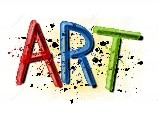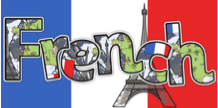Our Curriculum Intent
Learners come to Mill Dam from a wide catchment, a variety of backgrounds and with a range of experience and knowledge from outside of school. Through our curriculum we will equip them to further develop and deepen this knowledge and will ensure that all children have equal access to the breadth and depth of our offer regardless of need or disadvantage.
At Mill Dam our curriculum will:
- Provide opportunities for children to develop and acquire the skills and knowledge they need to be confident and independent learners.
- Ensure that they are ready to move on and meet the challenges of high school.
- Plant the seeds of knowledge and experience to help them develop as lifelong learners, build cultural capital and make positive, sustained contributions to society.
All members of our school community have high expectations and ambitions for learning and will work together to ensure maximum impact on the development and application of knowledge and skills.
The core of our curriculum offer are our learning skills. These are:
- resilience
- communication
- teamwork
- problem solving
- reflection
- critical and creative thinking.
They are taught through PSHCE, assemblies and woven through topics as appropriate.
A strength of our curriculum is the provision of meaningful real-life experiences through field trips, visitors or hands on experiences within each theme or topic to ensure that children are fully engaged, eager to learn and to broaden their experiences and horizons. We will also offer a broad and varied range of extracurricular opportunities.
Our Subjects
In mathematics we follow the NCETM progression of skills and knowledge (supported by White Rose small steps) to ensure progression across the year groups, development of skills at an age and development appropriate time and understanding of complex content. All learners receive a minimum of one hour’s maths teaching a day following this framework. Children in KS1 also receive additional mastery in number teaching for 15 minutes a day in addition to their main maths lesson. Children in KS2 also receive additional sessions to support with multiplication table knowledge and arithmetic.

All learners will participate in a daily guided reading session which will include close reading as a class, teachers reading with individuals, reading for pleasure and completing comprehension and related tasks. Classes in Key Stage Two will also have a daily reading for pleasure time to provide the learners with another opportunity to increase their reading breadth and stamina.
Learners in Key Stage One and EYFS have a daily phonics session with groupings based on assessment for learning to meet the needs of individuals and rapidly develop their confidence and independence. Phonics sessions follow ‘Read, Write Inc’ to give a clear structure and progression to sessions. Learners are reassessed to measure their progress every half term and any adjustments to grouping or provision made.
All learners will have a daily English lesson for a minimum of 1 hour which will include elements of reading, writing, speaking and listening and will also include spelling, grammar and punctuation. Learners will be expected to produce writing in most sessions where they apply the GPS or text skills that they have been taught. The expectation is also that children will apply their core English skills in all outcomes across the wider curriculum.


Learners in Key Stage One and EYFS have a daily phonics session with groupings based on the current learning needs of individuals and rapidly develop their confidence and independence. Phonics sessions follow ‘Read, Write Inc’ which keeps their learning moving on and teaches early reading in a fun and engaging way.
Guided reading, reading for pleasure, class shared story times, visits to the school and local library, author visits and our annual Mill Dam Book Award all enhance the reading curriculum within school.

The majority of the science at Mill Dam is taught through hands on investigations and exploration. We teach our Learners how to enquire, ask questions and look for their own answers through experimentation and observation. Our extensive exterior environment has a diverse eco-system and habitats for wildlife, including a pond, hawthorne hedge, insect houses, raised beds of growing produce and other plants, meadow and unmanaged areas all of which are used as part of our science learning.
We also have a range of animals in schools which our students can care for and learn about.

We promote the understanding and respect for the fact that our students live as part of the wider British Culture, which is varied and welcoming to all. We all need to operate as part of this culture and in wider society this is developed through the teaching of:
Spiritual, Moral, Social and Cultural understanding and skills.
And the core British values of:
DEMOCRACY, RULE OF LAW, INDIVIDUAL LIBERTY, MUTUAL RESPECT and TOLERENCE OF DIFFERENT CULTURES AND RELIGIONS.
 History and geography are taught in context through our topic learning. Different periods of history are studied including the impact they has had on our current world, we also learn about key figures and the contributions they made. We study a wide range of countries, cultures, climates and environmental factors as part of our geography work and include fieldwork and enriching our learning through trips and visitors.
History and geography are taught in context through our topic learning. Different periods of history are studied including the impact they has had on our current world, we also learn about key figures and the contributions they made. We study a wide range of countries, cultures, climates and environmental factors as part of our geography work and include fieldwork and enriching our learning through trips and visitors.

At Mill Dam School we follow the Wakefield agreed syllabus for religious education which includes learning about Christianity, story from the bible and their meaning as well as key aspects and festivals of other major religions, comparing these to our own beliefs.

Computing is taught as both a stand alone subject and as a tool to help us learn in other areas of the curriculum. We learn coding from KS1 and develop these skills as the learners move through school up to more advanced skills in Years 5&6. ICT resources are used to help us research and present our learning, to gather and interpret data and to support sharing our ideas in different and accessible ways.

Learners across the school learn about music as part of their topics this includes music appreciation, playing and performing together and both reading and writing musical notation. Learners in LKS2 learn the recorder, we have a school choir and a range of other instruments are available to learn through peripatetic music teachers and extra curricular clubs.

All learners at Mill Dam take part in regular physical activity including both indoor and outdoor PE lessons. As well as a range of sports and activities to build fine and gross motor skills PE sessions also offer an opportunity to build teamwork, resilience and communication skills. Over the course of a year learners will take part in invasion games, hitting and fielding, gymnastics and dance and athletics activities. Extra curricular clubs, visits and sporting events and competitions all serve to deepen the physical education activities available to our children.

Each of our topics contain an element of art and design or design and technology learning. These are taught through practical activities and projects to build the learners’ skills, confidence and familiarity with a range of tools and media. Our learners explore and record their ideas in a sketch book which moves through school with them so that they can see the progress they have made and revisit skills.

Learners in KS2 have a weekly modern foreign language session. At Mill Dam we follow ‘La Jolie Ronde’ scheme for French which teaches language through oral lessons and activities with learners regularly practising their skills and vocabulary and building confidence in speaking another language.
